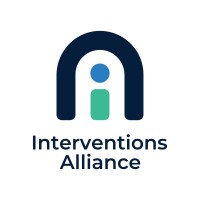Previous Article
News
Michelle S. Phelps on Supporting the Wellbeing of Adults on Probation
Supporting the Wellbeing of Adults on Probation
Findings from the U.S.
Michelle S. Phelps
Associate Professor of Sociology, University of Minnesota
Over the past several decades, Western countries have embarked on a dramatic proliferation of community sanctions–including probation, parole, community service, and fines and fees. This expansion of mass supervision, or what Fergus McNeill describes as pervasive punishment, is nowhere clearer than in the U.S. In 2018, one in every 72 adults was on probation (compared to one in 120 adults incarcerated in jails and prisons). Individuals on probation in the U.S. are under the supervision of a probation officer and required to meet a set of conditions of supervision, including abstaining from alcohol and substance use, reporting regularly, finding or maintaining employment and adequate housing, and paying supervision fees and court fines.
Despite the scale and severity of probation in the U.S., research on it’s consequences for individual, family, and community wellbeing are poorly understood, especially compared to the voluminous literature on mass incarceration. The Mass Probation and Health project was designed to map these connections, to better understanding how the criminal legal system and healthcare systems intersect. We situated our project in Hennepin County, Minnesota, a jurisdiction known for both its high rate of probation supervision and relatively moderate (by U.S. standards) incarceration rate.
In 2019, we interviewed 166 adults on probation, asking about a wide range of topics, including criminal justice histories; physical health, mental health, and substance use; employment and housing stability; and family dynamics. In our new report, Mass Probation and Health: Supporting the Wellbeing of Adults on Probation, we show that adults on probation face stark medical and social needs. Over 90% of our sample reported ever being diagnosed with one or more health conditions. Additionally, 75% of our sample reported that drug or alcohol use had ever been a problem for them, and just under half had participated in substance use treatment during the past year.
Social and economic needs were also acute. Almost half of our sample (40%) reported being uninsured or having gaps in their health insurance over the past year. The majority of participants (64%) were not employed at the time of the interview and 30% reported food insecurity. In addition, only 24% were living in their own apartment or home at the time of the interview.
For some participants, their arrest and supervision had helped connect them to health and social services, including substance use treatment and supportive housing. Still others continued to struggle with untreated health needs as well as stark social needs—including food insecurity, unstable housing, and other challenges.
Whether or not these needs were met shaped how participants experienced supervision–as we show through a series of profiles. While nearly all (roughly 90%) of participants described their experiences with their probation officers as respectful and fair, only 75% reported that they receive support from their probation officers when needed. In addition, over half (58%) agreed or strongly agreed that their experience on supervision had been stressful. The stress of supervision was often connected to the fear of revocation, with participants worried about how any technical violation, no matter how minor, could lead to their incarceration. Together, the stress of supervision often harmed participants’ ability to succeed in the community.
We end the report with four policy recommendations, which are oriented towards jurisdictions in the U.S. but some of which will apply more broadly. These recommendations include:
- Facilitating access to needed supportive services, including healthcare and assistance programs.
- Reducing the number of people on probation and/or active supervision.
- Narrowing the criteria for violations of supervision.
- Limiting drug testing and moving toward a desistance model of support.
We hope the report will better focus attention on the health needs of marginalized people and communities. Healthy families and communities need all of the other supports that enable people to thrive, including access to affordable housing, income support, responsive healthcare, and social inclusion. These health-promoting interventions make our communities safer for all.
To access the full report click here.

Related News
Keep up to date with the latest developments, stories, and updates on probation from across Europe and beyond. Find relevant news and insights shaping the field today.
New

Alternatives to pre-trial detention, Community Sanctions and Measures, Framework Decisions, Technology
Future of Criminal Justice: CEP’s Contribution to Key 2025 Dialogues
27/01/2026
Throughout 2025, CEP and its representatives actively participated in the online Technical meetings ahead of the HLF as well as the High Level Forum on Future of Criminal Justice taking place on 4-5 March 2025, 20-21 May 2025 and 1-2 October 2025 in Brussels, Belgium.
Recap

Alternatives to pre-trial detention
Recap: Webinar on Alternatives to Detention 2026
26/01/2026
On Thursday 22 January, CEP hosted the first webinar of 2025 on the topic of Alternatives to Detention. The session led by Ms. Marina Pajoni from the French Prison and Probation Service titled „Problem Solving Justice in Pracitce: The Meuse Probation Service´s Approach to Drug Addiction“ introduced an innovative programme developed by the Meuse Probation Service in close cooperation with the French Ministry of Justice.
New

Education and Training
CEP launches an interactive European map of probation education and training institution contacts
22/01/2026
The CEP is pleased to inform its members that a new dedicated section has been developed on the CEP website featuring an interactive map of Europe.
New

CEP Events
CEP activity calendar 2026
20/01/2026
As we begin the new year, we would like to thank all CEP members, partners, and participants for your continued engagement and valuable contributions. Your involvement plays an essential role in shaping CEP’s work and activities.
We are pleased to share the CEP calendar for 2026, which provides an overview of the events planned for the year ahead. We look forward to continuing our collaboration and welcoming you to upcoming CEP activities throughout the year.
Thank you for being part of the CEP community.
New

CEP members, Gender-based violence
Interventions Alliance’s Eden House Recognized as Outstanding
15/01/2026
CEP is delighted to share that Eden House, an Interventions Alliance residential service for women with high-risk or complex needs on probation, has been rated “Outstanding” overall by HM Inspectorate of Probation. In 2022, Eden House was honored with the CEP Public Protection Award. Our sincere congratulations to the team for this remarkable achievement.
New

Education and Training
The Judicial Training Dashboard
14/01/2026
The European Training Platform (ETP) is a search tool for justice professionals. You can find self-learning materials on a great variety of EU law practice areas and related topics, as well as links to training providers’ homepages and course catalogues.
Subscribe to our bi-monthly email newsletter!
"*" indicates required fields
- Keep up to date with important probation developments and insights.

